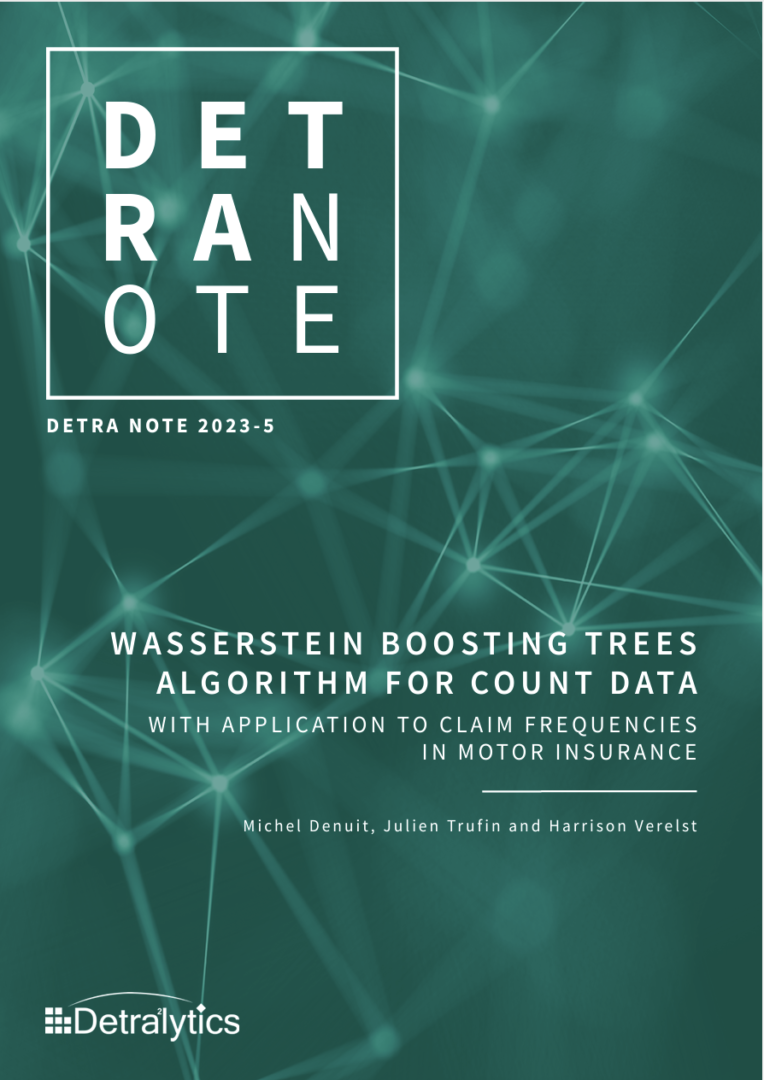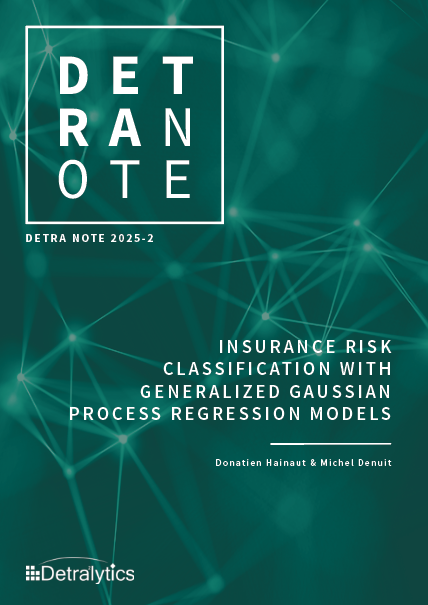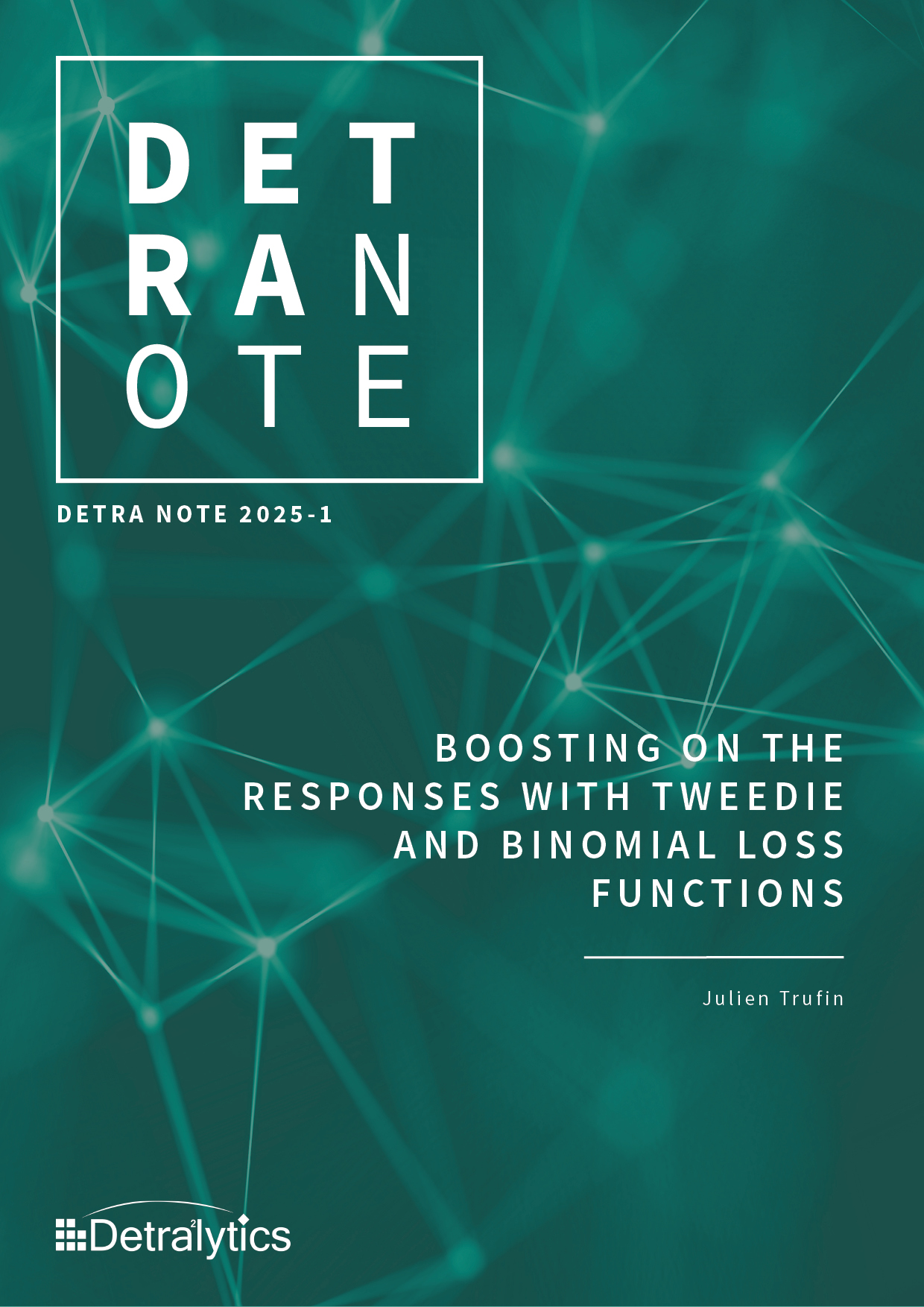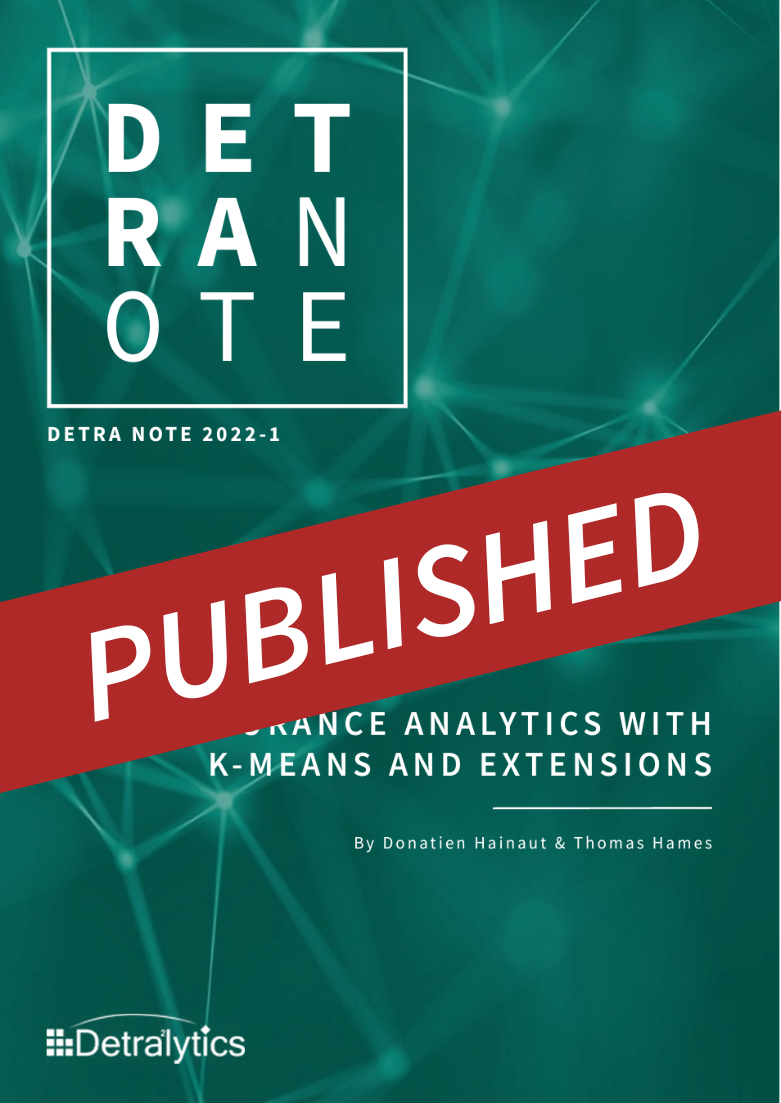Abstract
This paper proposes a variant of the well-known boosting trees algorithm to estimate conditional distributions. Since regression trees partition observations into subgroups, the corresponding empirical distributions can be used to define the splitting criterion. Precisely, the parametric approach using Poisson deviance is replaced with a non-parametric one maximizing probabilistic distances between empirical distributions in child nodes. Proceeding in this way, the actuary obtains an estimated conditional distribution for the response, from which a conditional mean can be derived as well as any other quantity of interest in risk management. The numerical performances of the proposed method are assessed with simulated data while a case study demonstrates its usefulness for insurance applications.
Keywords: Wasserstein distance, regression trees, boosting, conditional distribution, count data.
Sector: Insurance
Expertise: Motor Insurance
Authors: Michel Denuit,
Julien Trufin and Harrison Verelst
Publisher: Detralytics
Date: July 2023
Language: English
Pages: 20
Reference : Detra Note 2023-5
About the authors

Michel Denuit
Michel is an Honorary Scientific Advisor at Detralytics, as well as a professor in actuarial science at the Université Catholique de Louvain. He has international experience as a visiting professor, and has promoted many projects in collaboration with the industry. At Detralytics, Michel coaches young talents, provides cutting-edge training, fosters innovation and oversees R&D projects.

Julien Trufin
Julien is a Scientific Advisor at Detralytics, as well as a professor in Actuarial Science at the department of mathematics of the Université Libre de Bruxelles. Julien has experience as a consultant and a strong academic background developed at prominent institutions, including Université Laval (Canada), UCL, and ULB (Belgium). At Detralytics, Julien coaches young talents, provide cutting-edge training, fosters innovation and oversees R&D projects.

Harrison Verelst
Harrison was part of the Talent Consolidation Program (TCP) at the time of the publication. He holds two Master’s degrees in Mechanical Engineering and Quantitative Finance as well as a Master’s in actuarial sciences from ULB.





